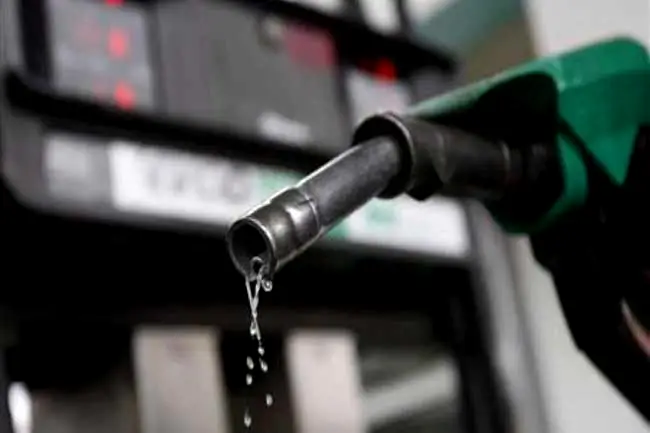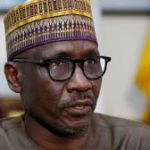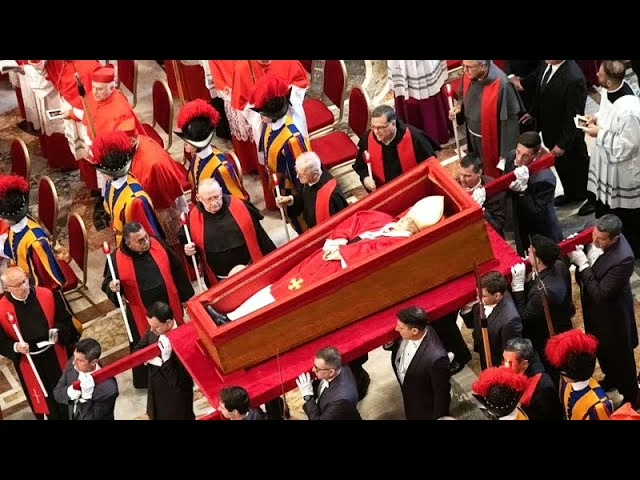MAJOR oil marketers, yesterday, adjusted the price of petrol to N185 per litre, from N169 per litre, in all parts of Nigeria.
Despite the expectation that the new price would encourage supplyto ease out shortage, checks by Vanguard indicated that there were long queues at the outlets of the major marketers that had limited stocks of the product, while those without the product simply shut their gates against customers.
It also showed that there were limited queues at the outlets of independent oil marketers which continued to sell in excess of N300 per litre.
Further checks indicated that the private depots did not open for business yesterday in Lagos, a development that culminated in dwindling stocks.
Consequently, illegal hawkers were seen in different parts of Lagos, Abuja and other cities hawking the product at prices, ranging from N300 to N500 per litre, depending on location.
This was more pronounced as the Nigerian Midstream and Downstream Regulatory Authority, NMDPRA continued to lack presence at filling stations and other important locations.
This, it was gathered, gave room for irregularities, especially diversion, hoarding and arbitrary pricing of the product.
The Chief Executive Officer of NMDPRA, Mr. Farouk Ahmed, did not respond when Vanguard called repeatedly yesterday.
Transport fares continue to surge
Consequently, the cost of transport fares rose tremendously as motorists moved to transfer the high costs of petrol to commuters.
For instance, in Lagos, a trip from Badagry to Mile 2, which used to cost about N500 before, now costs over N1,000. Agbara (Ogun State) to Mile 2, which used to be about N400, now costs over N700.
From First Gate, popularly called Igbo-Elerin Junction, on the LASU-Igando Road, to Iyana-Ipaja, which used to be about N300 before, now costs more than N500, whereas Igando to Iyana-Ipaja, which used to be N200, now costs N500.
Also, from Igando to First Gate, which was N100 before the hike, is now between N200 and N300. Igando to Iyana-Iba that was N150, is now between N300 and N500.
Checks showed that from Egbeda to Oshodi, which used to cost between N200 and N300 now goes for between N500 and N700, just as Egbeda to Ikeja which used to cost between N200 and N300 is now N500.
From Cele to Ikotun, which used to cost N150 is now between N500 and N600, subject to traffic volume at bus stop. From Cele to Jakande Estate Gate, which cost between N100 and N150 now goes for between N200 and N300.
Findings in Ajah area of the state showed that from Ajah to CMS, which used to be N400, is now N1,000 flat.
From CMS to Mile 2, which was between N200 and N400 now goes for between N700 and N1,000, while between Mile 2 and Vanguard Media Ltd, which used to be N100 is now N200.
Major causes
However, the Major Oil Marketers Association of Nigeria, MOMAN, attributed the petrol shortage to lack of foreign exchange, high costs of daughter vessels and inadequate trucks to deliver products from depots to filling stations.
In a statement obtained by Vanguard, MOMAN stated: “MOMAN sympathizes with our customers and Nigerians over the challenges we are facing in the purchase of petrol at filling stations across the country.
“These queues are caused by exceptionally high demand and bottlenecks in the fuel distribution chain. The major cause is the shortage and high (US Dollar) costs of daughter vessels for ferrying products from mother vessels to depots along the coast.
”Next is the inadequate number of trucks to meet the demand to deliver products from depots to filling stations nationwide.
“These high logistics and exchange rate costs continue to put pressure on prices at the pump. Over the past three months, staff and management of MOMAN companies have worked diligently at depots and filling stations to relieve the stress faced by customers through the Christmas and New Year period. Our members have again agreed to extend depot loading hours as well as keep strategically situated service stations open for longer hours to ease access to fuels for our customers”.
The Minister of State Petroleum Resources Timipre Sylva, who denied the involvement of President Muhammadu Buhari in the new fuel price, had stated weekend: “President Muhammadu Buhari has not approved any increase in the price of PMS or any other petroleum product for that matter.
”There is no reason for President Muhammadu Buhari to renege on his earlier promise not to approve any increase in the price of PMS at this time. Mr. President is sensitive to the plights of the ordinary Nigerian and has said repeatedly that he understands the challenges of the ordinary Nigerian and would not want to cause untold hardship for the electorate.”











Leave a Reply